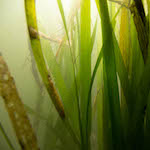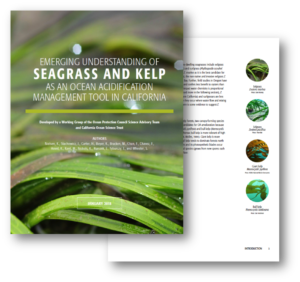“Emerging Understanding of Seagrass and Kelp as an Ocean Acidification Management Tool in California”
(January 2018)
This report communicates emerging scientific understanding of the ability of seagrass and kelp to ameliorate ocean acidification (OA) in a California-specific context. It provides guidance on next steps for the State as it considers future nature-based actions to reduce the negative impacts of OA in California and beyond.






